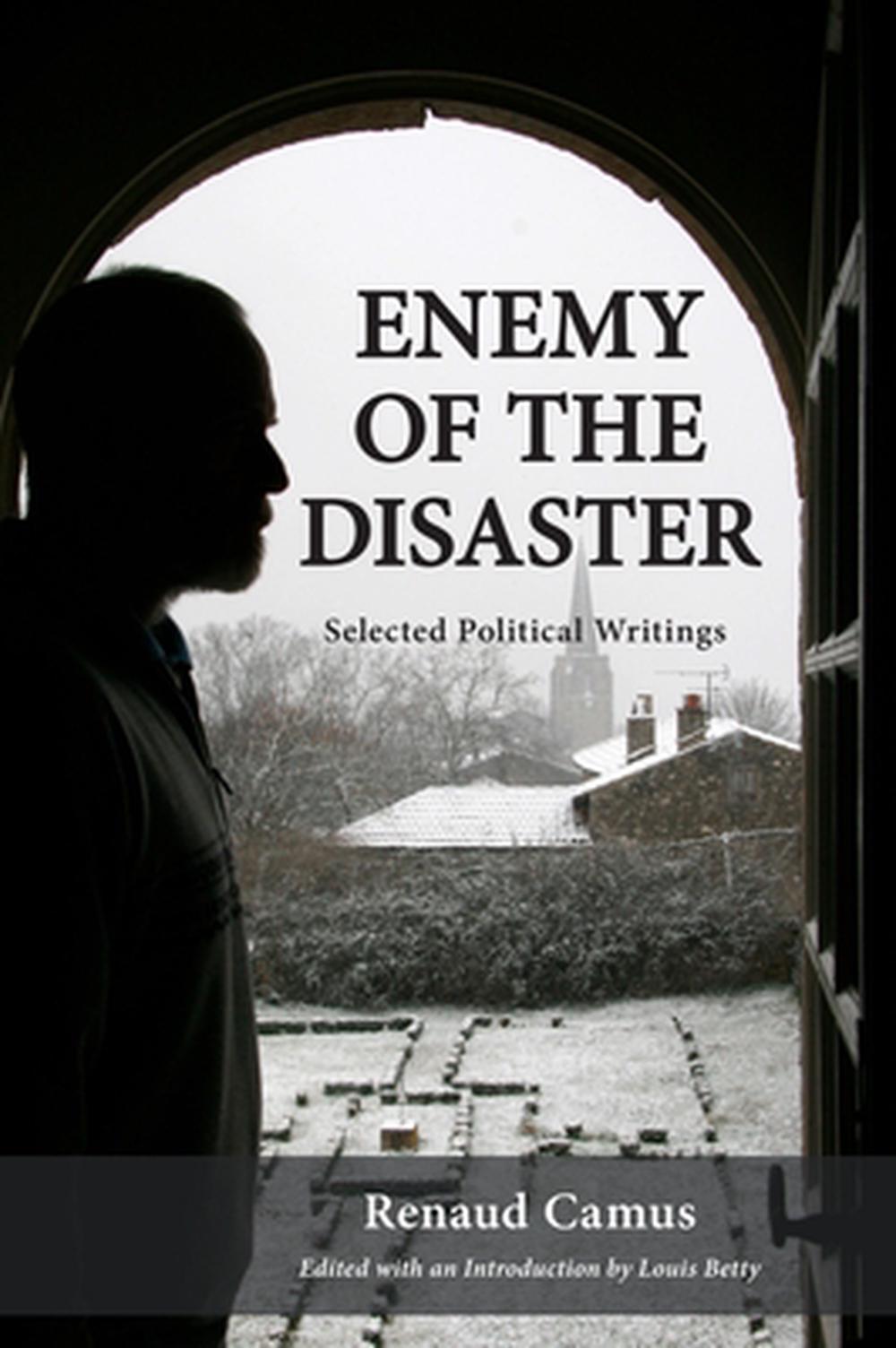
Enemy of the Disaster
selected political writings of renaud camus
$123.40
- Hardcover
232 pages
- Release Date
2 April 2025
Summary
Enemy of the Disaster: Unveiling Renaud Camus’ Political Thought
Enemy of the Disaster is the first authorized English translation of Renaud Camus’ political writings, featuring his controversial 2010 speech, “The Great Replacement.” Despite decades since his last English translation, Camus remains a subject of media discussion, his extensive work often reduced to a single, decontextualized phrase. He is often presented as a floating signifier, a rumor, rather than a fully …
Book Details
| ISBN-13: | 9798988739975 |
|---|---|
| Author: | Renaud Camus, Louis Betty, Ethan Rundell |
| Publisher: | Vauban Books |
| Imprint: | Vauban Books |
| Format: | Hardcover |
| Number of Pages: | 232 |
| Release Date: | 2 April 2025 |
| Weight: | 640g |
| Dimensions: | 232mm x 158mm x 32mm |
What They're Saying
Critics Review
“Camus’ work deserves to be better understood: his thinking on the ideology he calls ‘replacism’ occupies a politically unclassifiable and woefully underpopulated terrain adjacent to several areas of urgent contemporary importance, including ecology, cultural transmission, and feminism… anyone thinking seriously about long-term human sustainability should be reading Camus.”–Mary Harrington “
Substack
”“For good or ill, an essential publication, as few can genuinely be said to be.”–David Sexton “The Spectator
”“The dazed reader is swept along. The metaphors stun. Irony is deployed to brutal effect… Camus has no counterpart in the Anglophone world.”–Alistair Miller “The Salisbury Review
”“These essays are masterpieces of popular philosophy and reflection, and their style, flavour and essence has certainly survived a very deft translation. Even – especially – if you are determined to repudiate everything that Camus stands for, to defend everything he laments, you should address the original text and not the second, third order commentary.”–Simon Evans “The Critic
”About The Author
Renaud Camus
A native of Chamalières in the Auvergne region of central France, Renaud Camus (b. 1946) is one of France’s most brilliant stylists and the author of more than 150 books. Tricks, his first and only work to be translated into English until now, appeared in 1979 and was prefaced by Roland Barthes, one of twentieth-century France’s greatest literary critics and Camus’ mentor. In addition to the political essays collected in Enemy of the Disaster, Camus is also known for works of fiction, philosophy, travel writing, art criticism, and the extensive diary he has kept and published for over forty years. He lives in the Chateau de Plieux in the village of Plieux in southwestern France and is the president of a small political party, the Party of In-nocence, which advocates immigration and education reform and the promotion of civic peace.
Louis Betty is Associate Professor of French at the University of Wisconsin-Whitewater. In addition to his work on Renaud Camus, he is the author of Without God: Michel Houellebecq and Materialist Horror as well as numerous scholarly articles. He received his PhD from Vanderbilt University in 2011 and lives in Madison, WI.
Ethan Rundell is a translator, journalist, and alumnus of UC, Berkeley, and Paris’ School for Advanced Studies in the Social Sciences (EHESS). Rundell has translated over a dozen books as well as scores of academic articles. He lives in North Carolina.
Returns
This item is eligible for free returns within 30 days of delivery. See our returns policy for further details.




